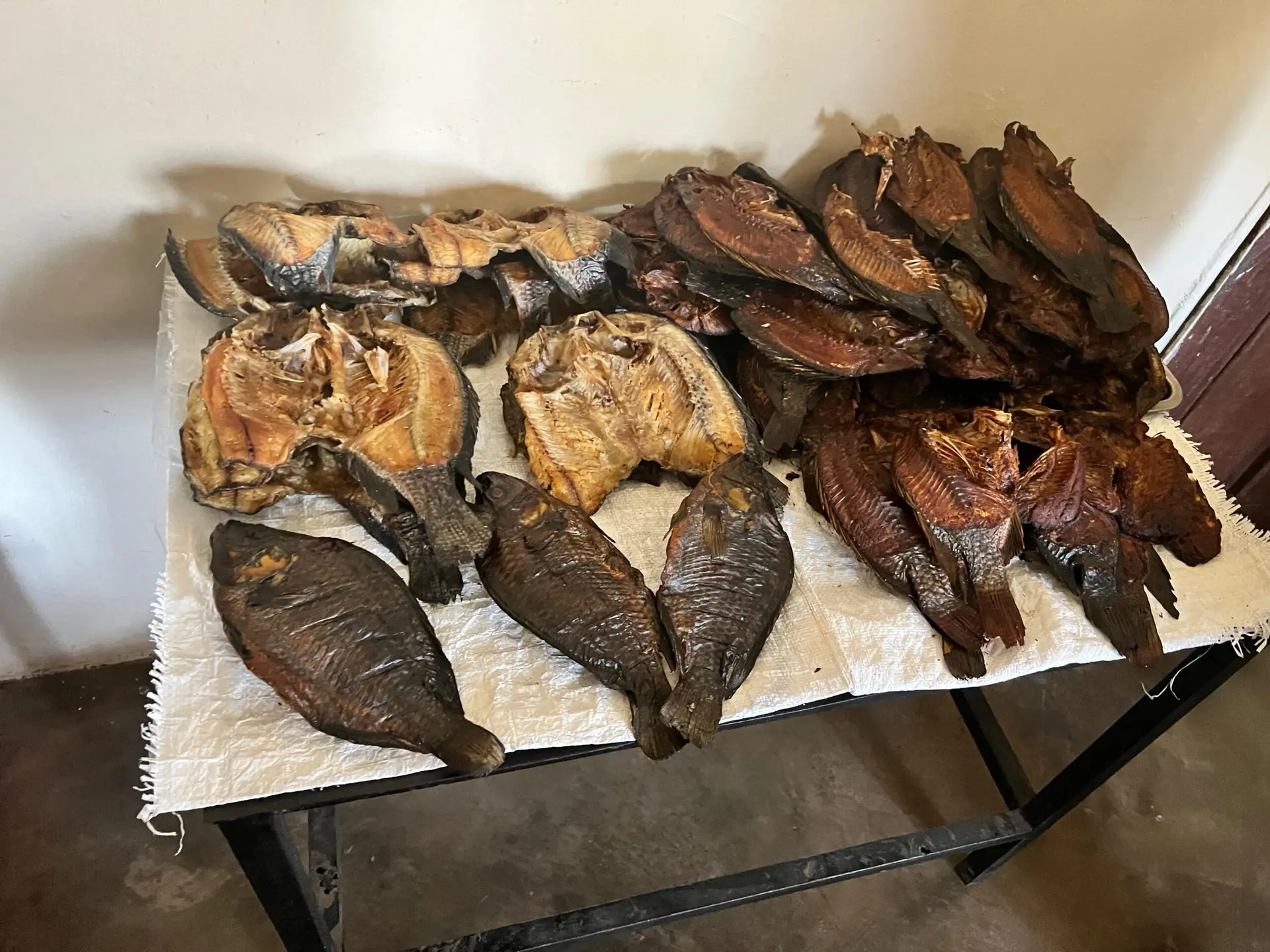Zambia’s fisheries sector has committed to a renewed and coordinated approach for sustainable and inclusive growth in a rallying call made during the National Fisheries Stakeholders Forum, held from 11–13 August 2025 at the Holiday Inn Hotel in Lusaka.
The two-day workshop was convened under the theme; “Strengthening Inclusive and Sustainable Fish Feed and Fisheries Value Chains for Job Creation and Inclusive Growth in Zambia”. It brought together more than 80 stakeholders representing Government Ministries and Institutions, Private Sector Players, Research and Academic Institutions, Civil Society, Financial Institutions, Fish Traders and Associations.
Stakeholders tackled some of the most pressing challenges facing the sector, the most critical being the high cost of feed, which constitutes about 70% of production costs for fish farmers. They also highlighted the need for harmonisation of standards to reduce costs related certifications and facilitate trade cross border trade for women and youth.
The workshop, convened as part of the Women and Youth Economic Empowerment in Fisheries Through Market Access Programme, was officially opened by Mr. Mbamwai Mbewe, Assistance Director Aquaculture on behalf of Dr. Max Choombe, Permanent Secretary in the Ministry of Fisheries and Livestock. He highlighted critical issues affecting the sector such as the need for alignment on investment policies that address the needs of the women and youth and improve their livelihoods.
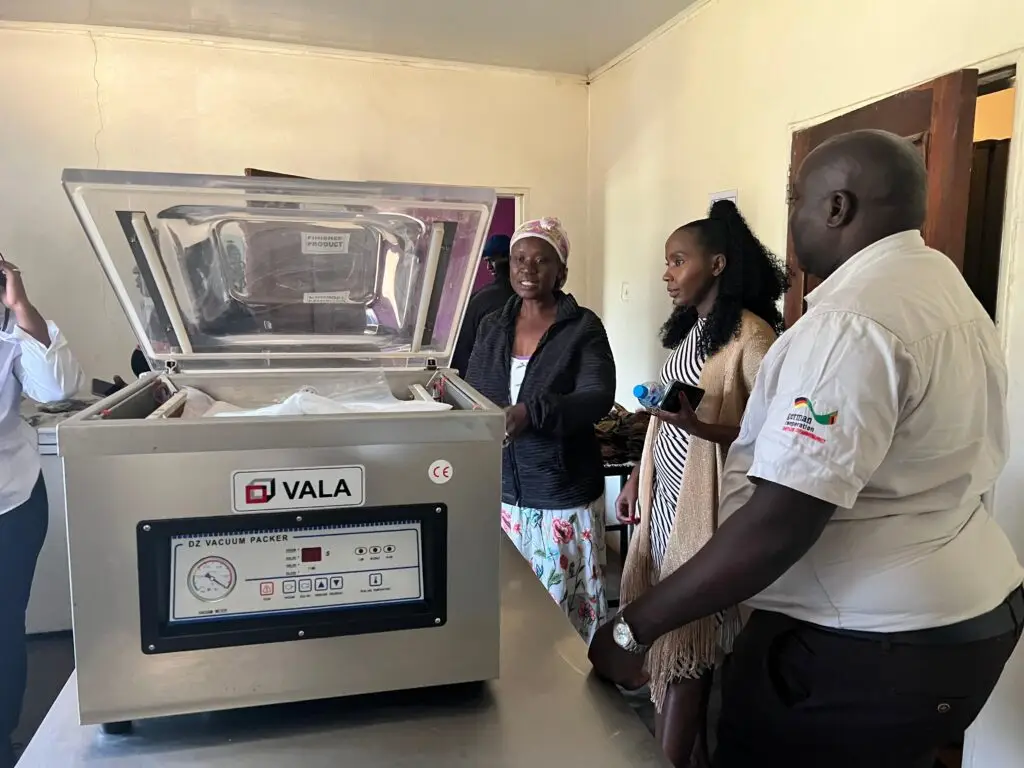
The Permanent Secretary encouraged partners to tap into Zambia’s vast natural endowments such as the diverse freshwater resources, further noting that investment in the sector will unlock employment opportunities for women and youth, promote food Security and nutrition for rural and urban communities in the fish value chain. He stated that intervention in policy alignment, harmonisation of standards and mutual recognition agreements among members of the African community will enhance intra-African trade and improve social economic welfare of its people.
He also highlighted some of the challenges, which the programme is designed to address. “We face notable challenges, which include limited infrastructure to enhance fish trade, low compliance to regulations, such as use of destructive fishing methods and gears, undeveloped market linkages, where TradeMark Africa, Mastercard Foundation and the African Continental Free Trade Area Secretariate (AfCFTA) strongly come in to create sustainable production and trade.”
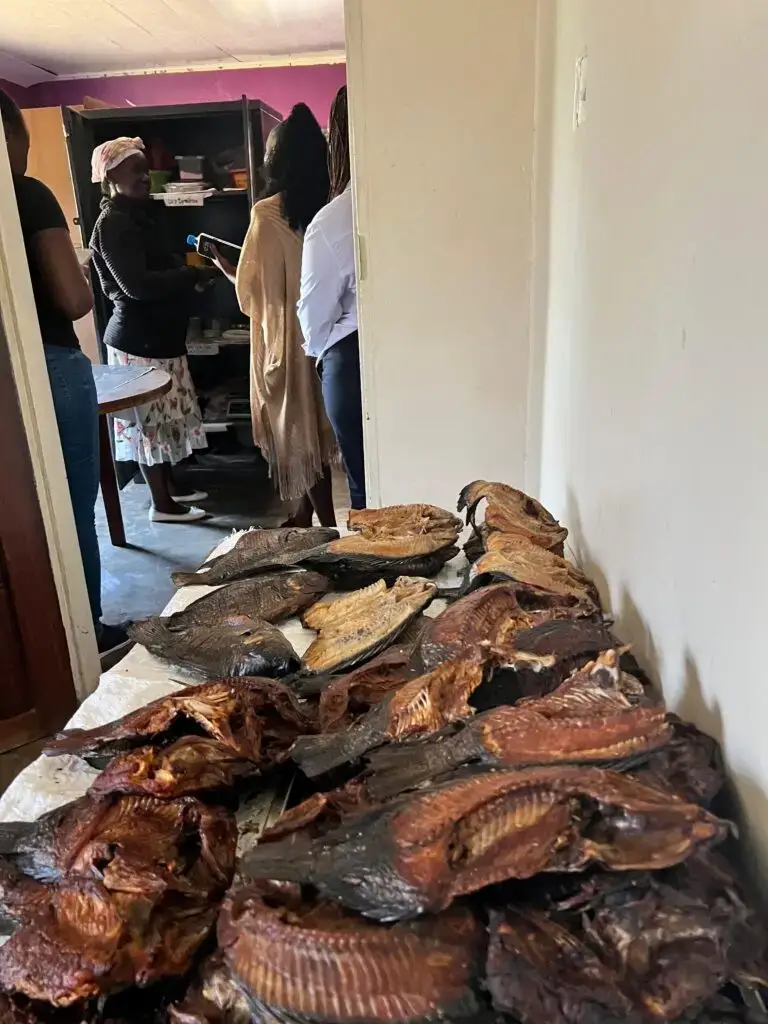
During the opening session, Mr. Themba Kumalo, Director of the Private Sector Unit (PSU) at the African Continental Free Trade Area Secretariat, thanked the Zambian Government for the hospitality and commitment to partner with the AfCFTA in implementing the Programme. He informed the forum that the Programme was launched at the Council of Ministers of Trade Meeting in June 2024 in Zanzibar, United Republic of Tanzania to leverage on the opportunities under the AfCFTA to support cross border trade especially for women and you in the fish value chain.
“Zambia is an important player in the programme owing to its potential in the fish and fish feed production. The potential in feed production can help alleviate the existing high cost of production, as feed contributes to about 70% of the production cost,” he noted.
He emphasised the need to ensure women and youth are not just participants but leaders in this transformation as the programme makes tangible progress towards inclusive industrialisation and regional value chain integration. “From harmonising regulatory frameworks to scaling sustainable technologies and increasing access to finance, our task now is to turn dialogue into sustained action.”
The fisheries programme is a five-year initiative led by the AfCFTA Secretariat in partnership with TradeMark Africa and Mastercard Foundation. It is implemented in seven countries in Africa, including Zambia and seeks to create over 242,000 decent jobs, improve market access, strengthen business skills, and promote equitable participation for women and youth in the sector.
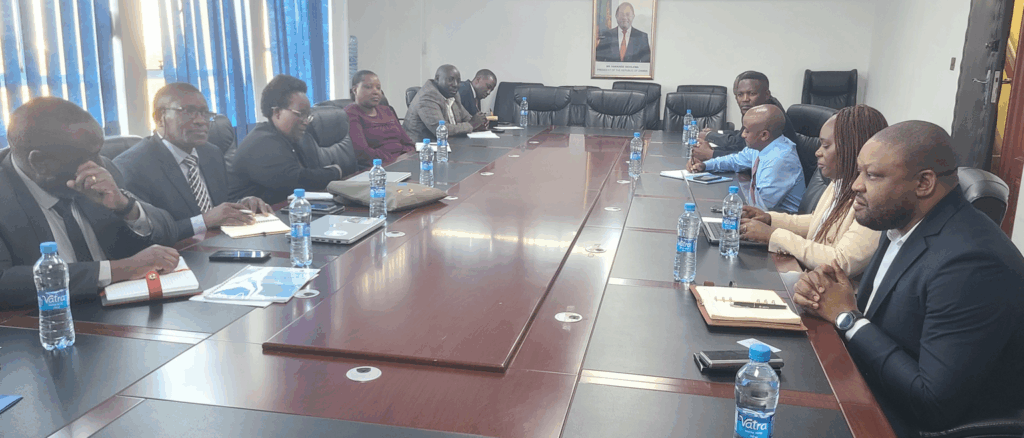
African Continental Free Trade Area (AfCFTA) Secretariate team led by Head of the Private Sector Unit, Themba Kumalo and his team together with TMA led by Fisheries Programme Manager, George Wamae (blue shirt), meeting with Permanent Secretary in the Ministry of Fisheries and Livestock, Dr. Max Choombe and his team on 11 August 2025
With Zambia’s abundant freshwater resources namely, 15 million hectares of water bodies and 8 million hectares of wetlands, the country has long been viewed as a natural hub for both capture fisheries and aquaculture. The sector contributes approx. 3.2% to national GDP and supports the livelihoods of over one million people, playing a crucial role in rural income, employment and food security. Yet, overfishing, environmental degradation, and inadequate infrastructure have slowed progress. Still, despite the rapid expansion of aquaculture, persistently high costs and inconsistent quality of fish feed remain major stumbling blocks, particularly for women- and youth-led enterprises.
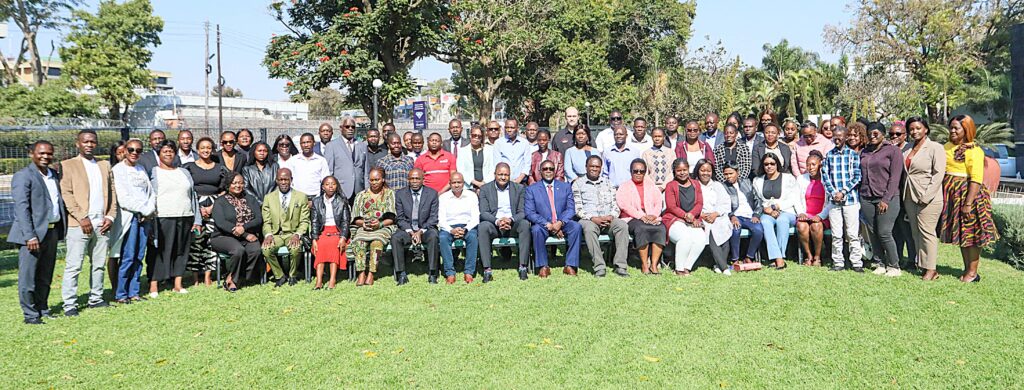
Group Photo at the National Fisheries Forum in Lusaka Zambia on 12 August 2025
“We have a real opportunity to transform this sector into a leading source of employment, trade, and food security. But it will require us to address critical gaps in fish feed production and distribution, enhance access to affordable and high-quality inputs, and strengthen market systems to ensure fair and profitable participation—especially for women and youth,” TradeMark Africa’s Programme Manager, George Wamae.
The forum concluded with participants agreeing on a shared roadmap to improve feed quality standards, increase local feed production using indigenous ingredients, expand access to finance for smallholder fish farmers and traders, foster innovation in aquaculture technology, and promote gender-responsive policies.


